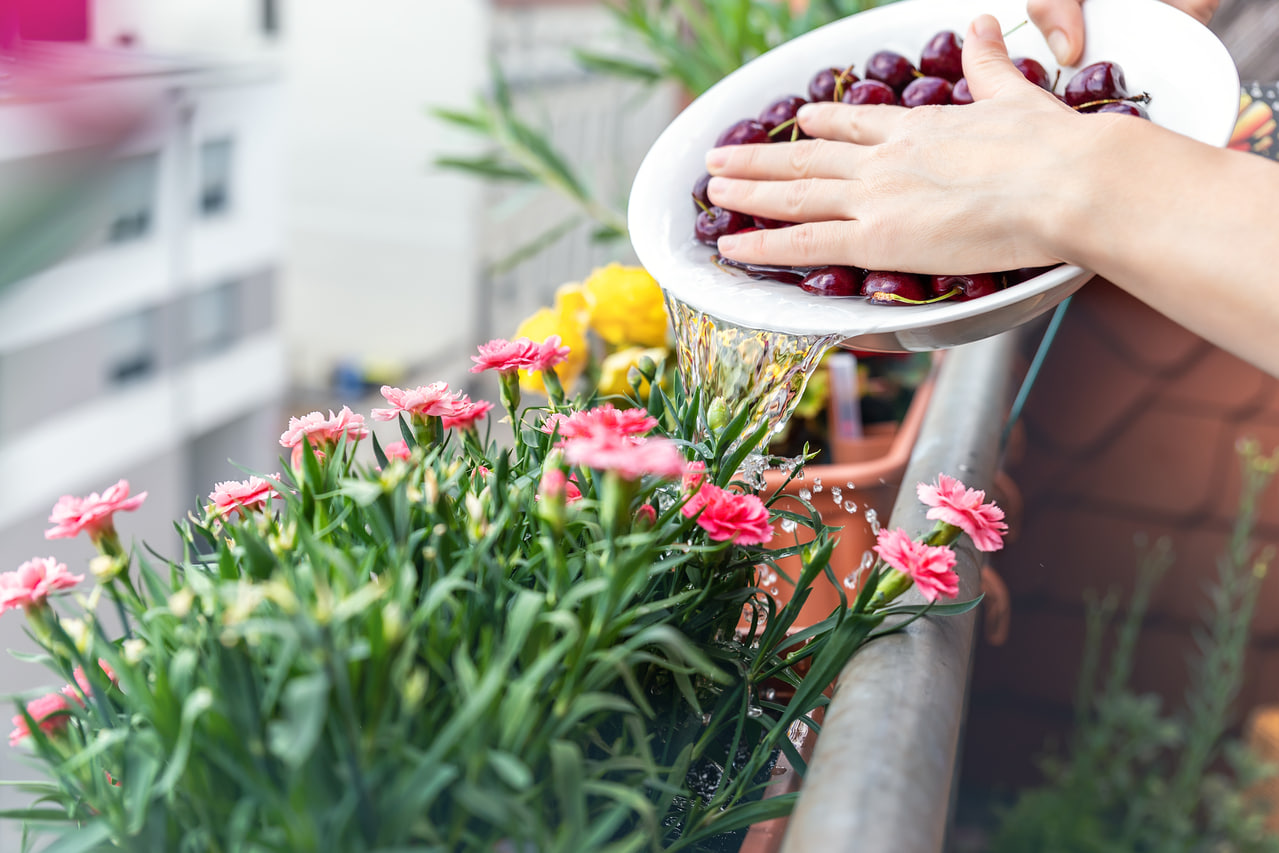Introduction:
In the hustle and bustle of modern life, mental health has become an increasingly important topic. One of the most effective, yet often overlooked, ways to boost your mental well-being is through gardening—specifically, balcony gardening. Whether you live in a city apartment or simply have a small outdoor space, creating a balcony garden offers a unique combination of therapeutic benefits. Spending time tending to plants, watching them grow, and nurturing them can have profound effects on your mental health.
In this blog, we’ll explore how balcony gardening can enhance your mental well-being, reduce stress, and promote relaxation. From boosting mood to improving focus, balcony gardening is more than just a hobby—it can be a powerful tool for better mental health.
1. Reduces Stress and Anxiety
Urban life can often feel overwhelming, especially with constant noise, traffic, and the daily grind of work. Stress is a natural part of life, but chronic stress can take a significant toll on our physical and mental health. One of the key benefits of balcony gardening is its ability to reduce stress and anxiety.
How Gardening Helps:
- Connection with Nature: Spending time with nature, even in a small outdoor space like a balcony, has been shown to lower stress levels. The act of tending to plants, smelling the earth, and watching flowers bloom can help ground you, making you feel more connected to the present moment. This connection to nature is often referred to as “ecotherapy” and is known to reduce feelings of anxiety and mental exhaustion.
- Mindful Activities: Gardening encourages mindfulness, a practice where you focus entirely on the task at hand without distractions. Whether it’s planting seeds, watering your plants, or simply observing their growth, these activities can help calm your mind and bring you into a state of relaxation.
- Distraction from Worries: Balcony gardening offers an escape from the pressures of everyday life. The rhythm of caring for your garden provides a mental break, allowing you to momentarily forget about work, personal challenges, or anxiety-inducing thoughts.
Scientific Evidence: Studies have shown that engaging with nature can reduce the production of cortisol, the hormone associated with stress. Research has also demonstrated that gardening can have a therapeutic effect similar to meditation, helping individuals manage anxiety more effectively.
2. Improves Mood and Boosts Happiness
The act of gardening, particularly growing plants on your balcony, can significantly improve your mood and overall sense of happiness. Even small acts of nurturing life can have an uplifting effect on your mental state.
How Gardening Boosts Your Mood:
- Sense of Accomplishment: Watching your plants grow and flourish provides a sense of accomplishment and satisfaction. The effort you put into planting, watering, and caring for your balcony garden is rewarded with the beauty of thriving plants. This sense of achievement is powerful, especially when you face challenges in other areas of your life.
- Increased Exposure to Sunlight: Spending time outdoors, even in small bursts, exposes you to natural sunlight, which is essential for producing serotonin in the brain. Serotonin is often referred to as the “feel-good” neurotransmitter because it promotes feelings of happiness and well-being. By spending time in your balcony garden, even just for a few minutes each day, you increase your exposure to sunlight, which can naturally lift your spirits.
- Sense of Purpose: A balcony garden provides a purpose—a reason to care for something and see it grow. This sense of purpose can combat feelings of loneliness or lack of direction, and give you something to look forward to every day.
Scientific Evidence: Research has found that gardening activities can trigger the release of dopamine, the “reward” chemical in the brain, which is linked to feelings of pleasure. In fact, gardening has been shown to increase serotonin levels, leading to improved mood and reduced feelings of depression.
3. Enhances Cognitive Function and Focus
Another surprising benefit of balcony gardening is its ability to enhance cognitive function and improve focus. Gardening is not only a physical activity but also requires a certain amount of mental engagement and problem-solving, which can sharpen your mind.
How Gardening Improves Focus and Mental Clarity:
- Stimulates Creativity: Planning and designing your balcony garden involves making decisions about plant placement, color schemes, and arranging containers. These creative tasks stimulate the brain and engage your imagination, fostering creativity and problem-solving skills.
- Boosts Concentration: Gardening requires focus—whether you’re planting seeds with precision, adjusting the water levels, or paying attention to changes in your plants. This focused attention helps train your brain to concentrate better in other areas of life, whether at work or in personal activities.
- Relieves Mental Fatigue: Studies show that spending time in a garden environment can refresh the brain and improve cognitive performance. Gardening offers a natural mental reset by engaging both the body and the mind. This makes it easier to focus on other tasks and avoid burnout.
Scientific Evidence: Research published in the Journal of Environmental Psychology has shown that gardening can improve cognitive function and reduce mental fatigue. Engaging with nature for just 30 minutes a day has been shown to increase concentration, improve memory, and help manage symptoms of attention deficit disorder (ADD).
4. Promotes Physical Activity and Well-Being
Although gardening is often associated with mental health benefits, it also offers physical health benefits that indirectly support your overall well-being. Physical activity has a direct impact on reducing feelings of depression and anxiety.
How Gardening Improves Physical Health:
- Light Exercise: Gardening involves various physical activities such as bending, squatting, digging, and lifting, all of which are great for increasing mobility and improving physical health. Even light physical activity like watering plants or tending to your garden for an hour a day can help release endorphins—the body’s natural mood enhancers.
- Increases Outdoor Time: Spending time outdoors is crucial for your physical health. Fresh air and exposure to nature not only provide a break from indoor settings but also offer opportunities for movement and relaxation. The physical act of gardening increases blood circulation and promotes a healthy heart.
- Boosts Immune System: Studies have shown that spending time in nature can help boost the immune system, reduce inflammation, and lower blood pressure. A strong immune system is crucial for mental and physical health, and gardening offers a way to strengthen it while nurturing your plants.
Scientific Evidence: Gardening has been linked to improved cardiovascular health. A study by BMC Public Health found that gardening is one of the most effective low-impact exercises that can increase levels of physical activity in adults and older individuals, leading to better overall health and lower rates of depression.
5. Fosters Connection and Community
Gardening can also foster a sense of connection—whether to nature, yourself, or your local community. For many people, gardening offers a unique way to connect with others and engage in shared experiences.
How Gardening Creates a Sense of Community:
- Sharing Knowledge: Whether you’re exchanging gardening tips with a neighbor or participating in online gardening forums, gardening creates an opportunity to share knowledge and learn from others. This sense of community can combat feelings of isolation and foster a positive support network.
- Growing for Others: If you’re growing herbs or flowers, sharing your bounty with friends, family, or neighbors can create a sense of joy and connectedness. A gift of fresh basil or a bouquet of homegrown flowers can bring joy to both the giver and the receiver, further strengthening social bonds.
- Creating a Personal Retreat: Your balcony garden can become your own personal retreat—a peaceful, private space where you can escape from the pressures of the outside world. This retreat allows you to recharge, fostering a deeper connection with your own mental and emotional well-being.
Scientific Evidence: Studies have shown that gardening can have positive effects on social connectedness, especially in community garden settings. In addition, shared gardening experiences can lead to improved mental health outcomes, including reduced anxiety and depression.

